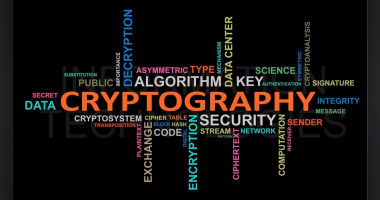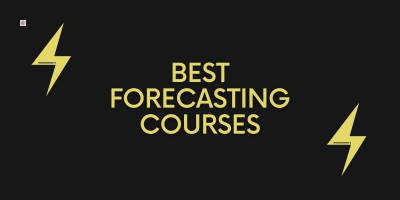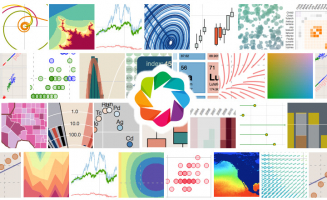Top 10 Best Online Inference Courses
Inference is a process whereby a conclusion is drawn without complete certainty, but with some degree of probability relative to the evidence on which it is ... read more...based. If you are interested in inference and want to learn about it, here are the best online inference courses to get you started.
-
This course, one of the best online inference courses, is designed to assist you in making more accurate statistical inferences from empirical research. First, you'll learn how to interpret p-values, effect sizes, confidence intervals, Bayes Factors, and likelihood ratios correctly, as well as how these statistics can be used to answer a variety of questions. Then you'll learn how to design experiments with a low false positive rate and how to choose the right sample size for your study, such as to achieve high statistical power.
Subsequently, you will learn how to interpret evidence in the scientific literature given widespread publication bias, for example by learning about p-curve analysis. Finally, you'll discuss how to conduct philosophy of science, theory construction, and cumulative science, as well as how to conduct replication studies, why and how to pre-register your experiment, and how to share your findings using Open Science principles.
You will learn how to simulate t-tests to determine which p-values to expect, calculate likelihood ratios and gain an introduction to binomial Bayesian statistics, and learn about the positive predictive value, which expresses the probability that published research findings are true, through practical, hands-on assignments. You'll calculate effect sizes, practice a-priori power analyses, and see how confidence intervals work through simulations. Finally, you'll learn how to use equivalence testing and Bayesian statistics to determine whether the null hypothesis is true, as well as how to pre-register a study and share your data on the Open Science Framework.
This course offers:
- Flexible deadlines: Reset deadlines based on your availability.
- Shareable certificate: Get a Certificate when you complete
- 100% online
- Intermediate level
- Approx. 28 hours to complete
- Subtitles: Arabic, French, Portuguese (European), Chinese (Simplified), Italian, Vietnamese, German, Russian, English, Spanish
Course ratings: 4.9/5
Enroll here: https://www.coursera.org/learn/statistical-inferences

online.stanford.edu 
pll.harvard.edu -
Do you want to solve a murder case? What went wrong with your computer? In your daily life, who can you rely on? This course will teach you how to evaluate and analyze five types of inductive arguments: generalizations from samples, applications of generalizations, inference to the best explanation, analogy arguments, and causal reasoning. The course concludes by demonstrating how probability can be used to aid in the making of various decisions.
Each week will be broken down into several video segments that can be watched individually or in groups. After each segment, there will be a short ungraded quiz to check comprehension, as well as a longer graded quiz at the end of the course. Understanding Arguments: An Introduction to Informal Logic, Ninth Edition, Concise, Chapters 8-12, by Walter Sinnott-Armstrong and Robert Fogelin, is recommended for students who want more detailed explanations or additional exercises, or who want to dig deeper into these topics.
This course offers:
- Flexible deadlines: Reset deadlines based on your availability.
- Shareable certificate: Get a Certificate when you complete
- 100% online
- Course 3 of 4 in the Introduction to Logic and Critical Thinking Specialization
- Beginner level
- Approx. 24 hours to complete
Course ratings: 4.8/5
Enroll here: https://www.coursera.org/learn/inductive-reasoning

stormgeo.com 
simplilearn.com -
This Specialization will teach you how to analyze and visualize data in R and create reproducible data analysis reports, how to demonstrate a conceptual understanding of the unified nature of statistical inference, how to perform frequentist and Bayesian statistical inference and modeling to understand natural phenomena and make data-based decisions, how to communicate statistical results correctly, effectively, and in context without relying on statistical jargon, and how to critique data-based claims.
You'll create a portfolio of data analysis projects from the Specialization that demonstrates mastery of statistical data analysis, from exploratory analysis to inference to modeling, and that you can use to apply for statistical analysis or data scientist jobs. This is definitely one of the best online inference courses.
This course offers:
- Shareable certificate: Get a Certificate when you complete
- 100% online courses
- Flexible schedule: Set and stick to flexible deadlines.
- Beginner level: No prerequisite knowledge.
- Approximately 5 months to complete: Recommended pace of 2 hours/week
- Subtitles: English, Arabic, French, Portuguese (European), Italian, Vietnamese, Korean, German, Russian, Spanish
Course ratings: 4.7/5
Enroll here: https://www.coursera.org/specializations/statistics

ai-mind.eu 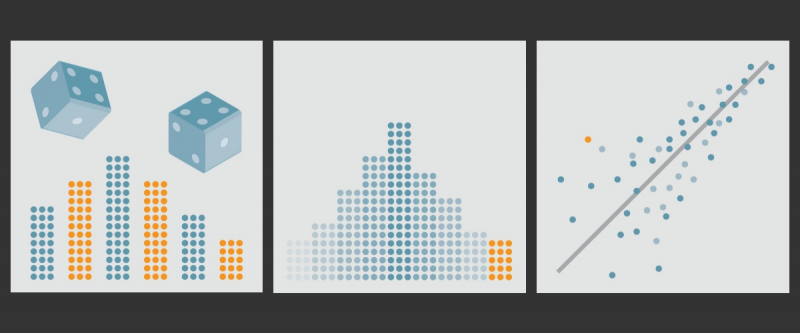
reddsera.com -
You have heard the phrase “correlation does not equal causation.” What, then, does equal causation? This course aims to provide an answer to that question, as well as others! You will learn how to define causal effects, what assumptions about your data and models are required, and how to implement and interpret some popular statistical methods over the course of 5 weeks. Learners will be able to apply these methods to real-world data in R. (free statistical software environment).
Learners should be able to define causal effects using potential outcomes, explain the difference between association and causation, and express assumptions using causal graphs by the end of the course. You'll also learn how to use a variety of causal inference methods (for example, matching, instrumental variables, and inverse probability of treatment weighting) and determine which causal assumptions are required for each statistical method.
This course offers:
- Flexible deadlines: Reset deadlines based on your availability.
- Shareable certificate: Get a Certificate when you complete
- 100% online
- Intermediate level
- Approx. 18 hours to complete
- Subtitles: French, Portuguese (European), Russian, English, Spanish
Course ratings: 4.7/5
Enroll here: https://www.coursera.org/learn/crash-course-in-causality

digitalskillup.com 
wtmacademy.com -
PGMs (probabilistic graphical models) are a powerful tool for encoding probability distributions in complex domains, such as joint (multivariate) distributions involving many random variables that interact with one another. These representations are based on concepts from probability theory, graph algorithms, machine learning, and more, and they sit at the intersection of statistics and computer science. They serve as the foundation for cutting-edge methods in a wide range of fields, including medical diagnosis, image understanding, speech recognition, natural language processing, and so on. They're also a crucial part of putting together many machine learning problems.
This is the second of three courses in a series. Following on from the first course's focus on representation, this one looks at probabilistic inference and how a PGM can be used to answer questions. A PGM's structure is designed to allow questions to be answered efficiently, despite the fact that it generally describes a very high dimensional distribution. The course covers both exact and approximate algorithms for various types of inference tasks, as well as when and how each should be used. Two hands-on programming assignments are included in the (highly recommended) honors track, in which key routines of the most commonly used exact and approximate algorithms are implemented and applied to a real-world problem.
This course offers:
- Flexible deadlines: Reset deadlines based on your availability.
- Shareable certificate: Get a Certificate when you complete
- 100% online
- Course 2 of 3 in the Specialization Probabilistic graphical models
- Advanced level
- Approx. 38 hours to complete
- Subtitles: French, Portuguese (European), Russian, English, Spanish
Course ratings: 4.6/5
Enroll here: https://www.coursera.org/learn/probabilistic-graphical-models-2-inference
nvidia.com 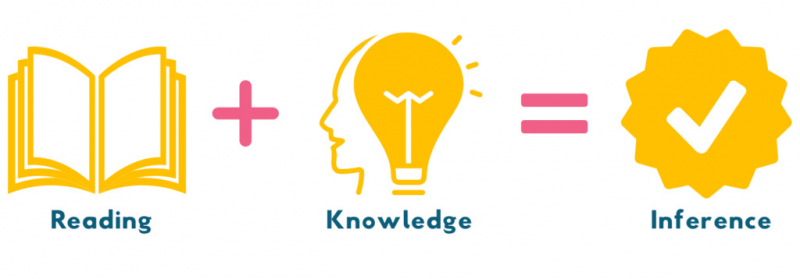
iheartliteracy.com -
In this course, you'll learn the fundamental principles of using data to estimate and evaluate theories. Starting with one population technique and expanding to handle comparisons of two populations, you will analyze both categorical and quantitative data. You'll discover how to create confidence intervals. You'll also use sample data to see if a hypothesis about the value of a parameter is supported by the data. The proper interpretation of inferential results will be a major focus.
Learners will apply what they've learned in Python within the course environment at the end of each week. Learners will work through tutorials focusing on specific case studies during these lab-based sessions to help solidify the week's statistical concepts, which will include deeper dives into Python libraries such as Statsmodels, Pandas, and Seaborn. This course makes use of Coursera's Jupyter Notebook environment.
This course offers:
- Shareable certificate: Get a Certificate when you complete
- 100% online
- Course 2 of 3 in the Statistics with Python specialization
- Intermediate level: High school algebra, successful completion of Course 1 in this specialization or equivalent background
- Approx. 19 hours to finish
- Subtitles: Arabic, French, Portuguese (European), Chinese (Simplified), Italian, Vietnamese, Korean, German, Russian, Turkish, English, Spanish
Course ratings: 4.6/5
Enroll here: https://www.coursera.org/learn/inferential-statistical-analysis-python

iheartliteracy.com 
indonesiare.co.id -
Making inferences from relationships found in the sample to relationships in the population is the focus of inferential statistics. Inferential statistics assist people in determining whether the differences between groups that they observe in their data are strong enough to support the hypothesis that group differences exist in the entire population.
The sampling and test statistic distribution, p-value, significance level, power, and type I and type II errors are all basic principles of significance testing that you'll learn about first. Then you'll look at a variety of statistical tests and techniques that can help you draw conclusions about various types of data and research designs. You'll think about how each statistical test works, what kind of data and design it needs, and how the results should be interpreted for each one. You'll also learn how to run these tests on your own computer using free software.
This course offers:
- Flexible deadlines: Reset deadlines based on your availability.
- Shareable certificate: Get a Certificate when you complete
- 100% online
- Course 4 of 5 in the Specialization Methods and statistics in social sciences
- Approx. 23 hours to complete
- Subtitles: Arabic, French, Portuguese (European), Italian, Vietnamese, German, Russian, English, Spanish
Course ratings: 4.3/5
Enroll here: https://www.coursera.org/learn/inferential-statistics
wtmacademy.com 
xilinx.com -
Statistical inference, sampling distributions, and confidence intervals are all covered in this course. Students will learn how to define and construct good estimators, as well as the method of moments estimation, maximum likelihood estimation, and confidence interval construction methods that can be applied to a variety of situations.
This course is part of CU Boulder's Master of Science in Data Science (MS-DS) program, which is available on the Coursera platform. The MS-DS is an interdisciplinary degree that brings together faculty from the Applied Mathematics, Computer Science, Information Science, and other departments at CU Boulder. The MS-DS is ideal for individuals with a broad range of undergraduate education and/or professional experience in computer science, information science, mathematics, and statistics, as it is based on performance rather than application.
This course offers:
- Flexible deadlines: Reset deadlines based on your availability.
- Shareable certificate: Get a Certificate when you complete
- 100% online
- Course 2 of 3 in the Data Science Foundations Specialization: Statistical Inference
- Intermediate level: Sequence in calculus up through Calculus II (preferably multivariate calculus) and some programming experience in R.
- Approx. 26 hours to complete
- Subtitles: English
Course ratings: 4.3/5
Enroll here: https://www.coursera.org/learn/statistical-inference-for-estimation-in-data-science

mcdreeamiemusings.com 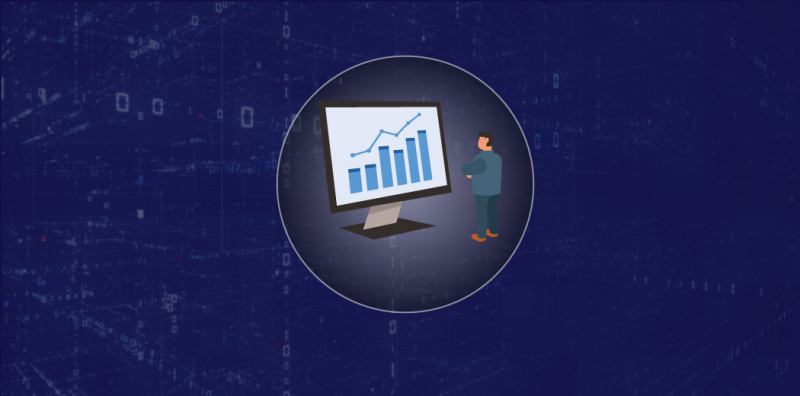
analyticsvidhya.com -
The process of inferring population or scientific truths from data is known as statistical inference. Statistical modeling, data-oriented strategies, and explicit use of designs and randomization in analyses are just a few of the methods for performing inference. Furthermore, there are numerous complexities (missing data, observed and unobserved confounding, biases) for performing inference, as well as broad theories (frequentists, Bayesian, likelihood, design based, etc.).
A practitioner's mind can become bogged down in a tangle of techniques, philosophies, and nuance. The fundamentals of inference are presented in this course in a practical approach to getting things done. Students will understand the broad directions of statistical inference after taking this course and will be able to use this knowledge to make informed decisions when analyzing data.
This course offers:
- Flexible deadlines: Reset deadlines based on your availability.
- Shareable certificate: Get a Certificate when you complete
- 100% online
- Approx. 54 hours to complete
- Subtitles: Arabic, French, Portuguese (European), Italian, Vietnamese, Korean, German, Russian, English, Spanish
Course ratings: 4.2/5
Enroll here: https://www.coursera.org/learn/statistical-inference

universalclass.com 
pail.phenikaa-uni.edu.vn -
This program is designed to give students a solid foundation in probability theory in order to prepare them for a more in-depth study of statistics. It will also introduce the learner to the fundamentals of statistics and statistical theory, as well as the skills necessary to perform basic statistical analysis of a data set using the R programming language.
This specialization is part of CU Boulder's Master of Science in Data Science (MS-DS) degree, which is available on the Coursera platform. The MS-DS is an interdisciplinary degree that brings together faculty from the Applied Mathematics, Computer Science, Information Science, and other departments at CU Boulder. The MS-DS is ideal for individuals with a broad range of undergraduate education and/or professional experience in computer science, information science, mathematics, and statistics, as it is based on performance rather than application.
This course offers:
- Shareable certificate: Get a Certificate when you complete
- 100% online courses
- Flexible schedule: Set and stick to flexible deadlines.
- Intermediate level: Sequence in calculus up through Calculus II (preferably multivariate calculus) and some programming experience in R.
- Approximately 4 months to complete: Recommended pace of 7 hours/week
- Subtitles: English
Course ratings: 4.1/5
Enroll here: https://www.coursera.org/specializations/statistical-inference-for-data-science-applications

francoischung.com 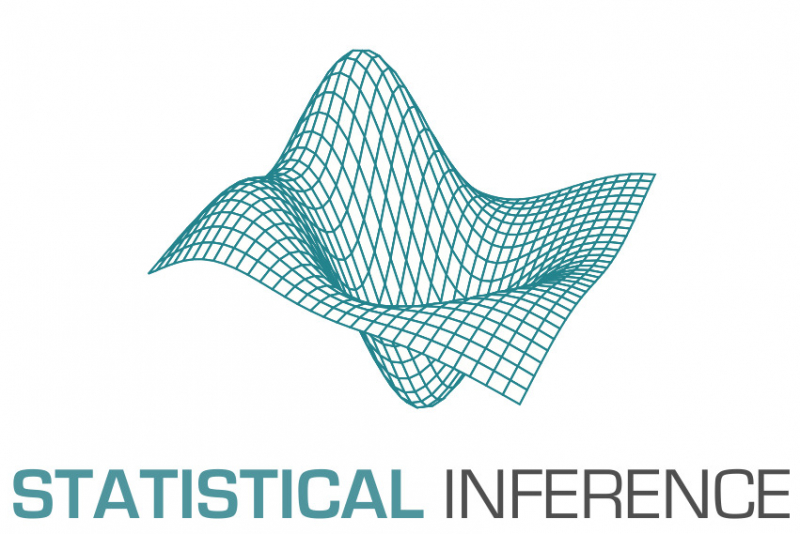
st-andrews.ac.uk















